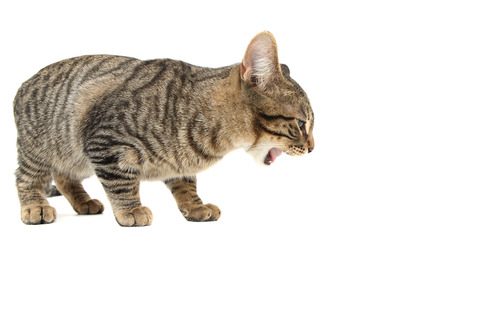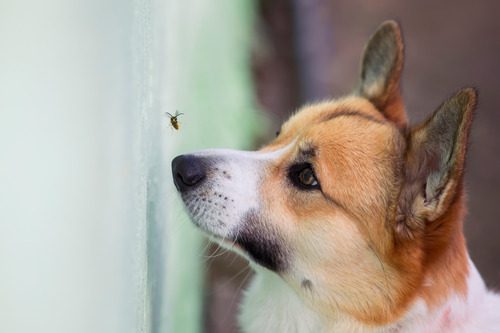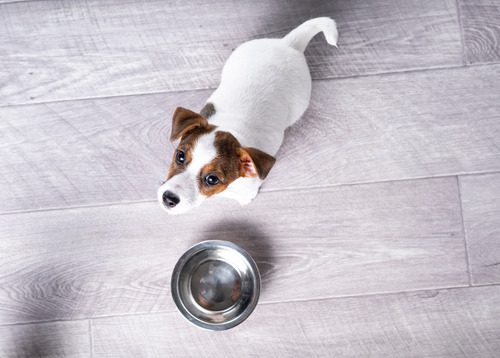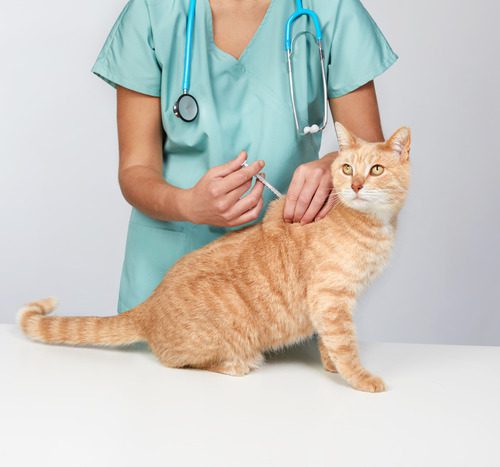Cats are known for their meticulous grooming habits, which can sometimes lead to the formation of hairballs. It’s a common concern among cat owners, prompting questions about whether this is a normal part of feline behavior or a sign of underlying health issues. At South Loop Animal Hospital in Chicago, IL, we’re here to shed light on this topic, offering insights into what causes hairballs, how they can affect your cat’s health, and when it might be time to seek professional advice. If you’re concerned about your cat’s hairballs, call us at (312) 753-5551 or book an appointment online for personalized care.

Understanding Cat Hairballs
Hairballs, scientifically known as trichobezoars, are not just a nuisance but a natural outcome of your cat’s grooming process. As they lick their fur, cats ingest loose hair, which can accumulate in the stomach. While most of this hair passes through the digestive system without issue, some can stay in the stomach, forming a hairball that is eventually vomited out.
The Grooming Process and Hairball Formation
Cats spend a significant portion of their day grooming themselves. This natural behavior helps them keep clean, control body temperature, and reduce stress. However, it also means they swallow a lot of hair. The structure of a cat’s tongue, with its tiny hook-like features, is designed to catch loose and dead fur, which is then ingested. In most cases, the ingested fur passes through the digestive tract without a problem, but sometimes it can gather in the stomach, leading to the formation of hairballs.
Are Hairballs a Cause for Concern?
Occasional hairballs are generally considered normal for cats, especially those with long fur. However, frequent hairball vomiting or signs of distress in your cat could indicate a health issue that needs attention. It’s essential to monitor the frequency and size of the hairballs and observe any other symptoms, such as changes in appetite, lethargy, or constipation, which could suggest a more serious condition.
When to Seek Professional Help
Understanding when to seek help is crucial for the well-being of your furry companion. If you notice any unusual symptoms or if the hairballs seem to be a recurring problem, it’s time to consult with a veterinarian.
Symptoms That Require a Vet’s Attention
If your cat is experiencing frequent hairball vomiting, showing signs of discomfort, or any changes in behavior or bowel movements, these could be red flags. Certain symptoms may prompt an immediate call to South Loop Animal Hospital. These may include:
- Persistent gagging
- Difficulty breathing
- Lethargy
- Lack of interest in food
How Your Vet Can Help
At South Loop Animal Hospital, our experienced team can provide a thorough examination to determine the cause of your cat’s hairballs. We might suggest dietary changes, grooming tips, or even medication to help manage the issue. In some cases, diagnostic tests may be necessary to rule out underlying health conditions. Our goal is to ensure your cat’s health and comfort, offering the best possible solutions tailored to their needs.
Preventing Hairballs in Cats
While it’s not always possible to completely prevent hairballs, there are several strategies you can employ to reduce their frequency and ensure your cat’s comfort.
Regular Grooming and Diet Changes
By regularly grooming your cat, you can help remove loose fur before it’s ingested. This is particularly important for long-haired breeds that are more prone to hairballs. Additionally, consider a diet formulated to improve coat health and reduce shedding. Some cat foods are designed to aid in the passage of ingested fur through the digestive system.
Hairball Remedies and Treatments
There are also over-the-counter hairball remedies that can help. These products, usually in the form of gels or pastes, are designed to help the ingested fur move through the digestive tract more easily. However, it’s important to consult with your vet at South Loop Animal Hospital before starting any new treatment to ensure it’s safe and suitable for your cat.
Ensuring Your Cat’s Comfort
While hairballs are a common aspect of cat ownership, understanding when they become a problem and how to manage them can make a significant difference in the health and happiness of your cat. By staying vigilant and proactive about grooming, diet, and observing your cat’s behavior, you can help minimize the occurrence of hairballs. Remember, if you have any concerns or notice any troubling symptoms related to hairballs, South Loop Animal Hospital is here to help. Call us at (312) 753-5551 or book an appointment online for expert care tailored to your cat’s needs.







